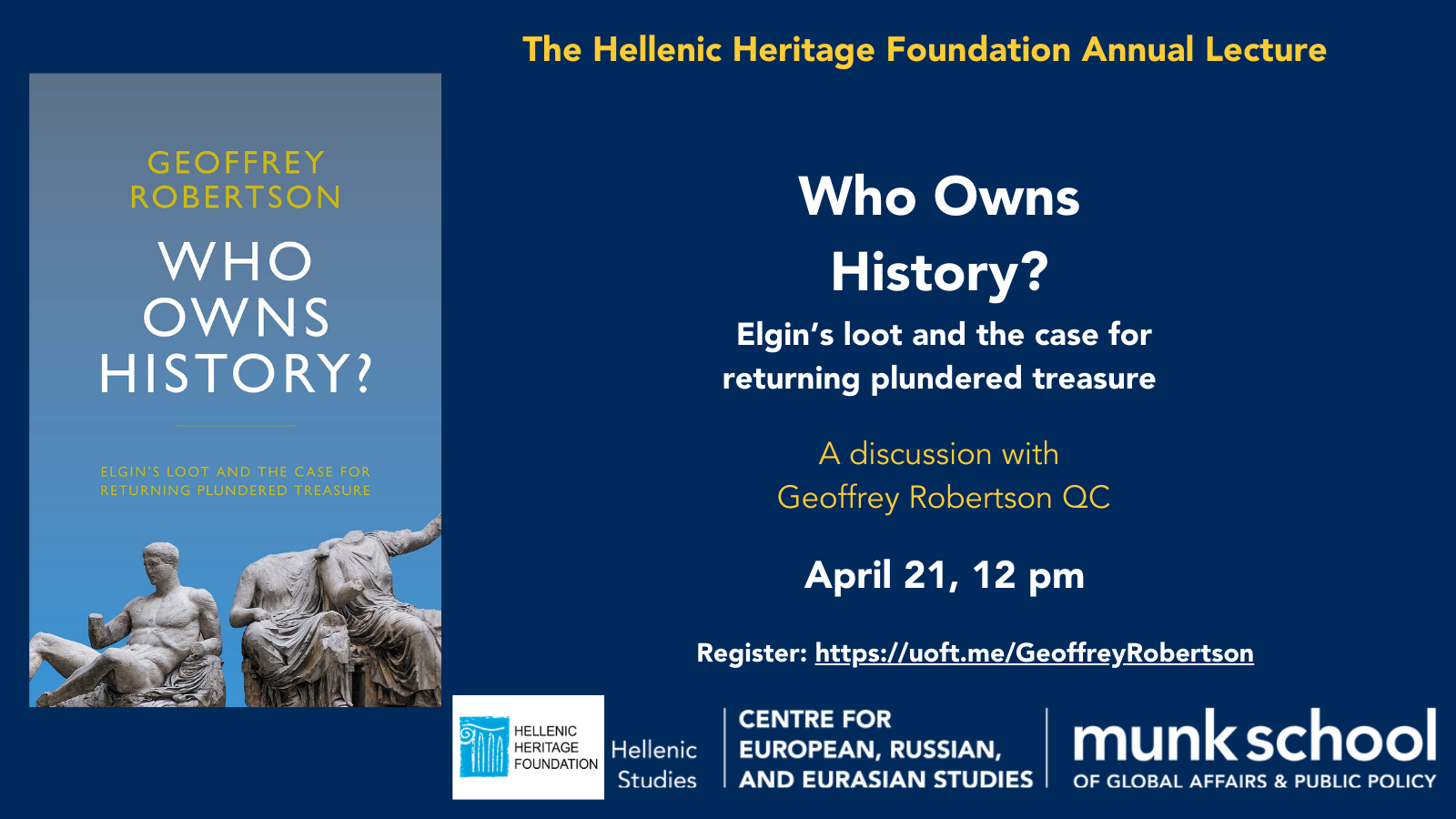Speakers:
- Geoffrey Robertson QC, founder and head of Doughty Street Chambers, the UK’s leading human rights legal practice
- Phil Triadafilopoulos (chair), Associate Professor of Political Science at the University of Toronto
Sponsors: CERES, The Hellenic Heritage Foundation, The Hellenic Initiative at CERES
Register: https://munkschool-utoronto-ca.zoom.us/webinar/register/WN_JvsMEoK5T56qKR_FXMmdXw
Geoffrey Robertson QC is founder and head of Doughty Street Chambers, the UK’s leading human rights legal practice. His books include Crimes Against Humanity (a textbook on the development of human rights law); The Tyrannicide Brief (the story of how Cromwell’s lawyers mounted the trial of Charles I); an acclaimed memoir, The Justice Game; Mullahs without Mercy; Stephen Ward Was Innocent, OK; and Rather His Own Man. In 2011, he received the Award for Distinction in International Law and Affairs from the New York State Bar Association.
The biggest question in the world of art and culture concerns the return of property taken without consent. Throughout history, conquerors or colonial masters have taken artefacts from subjugated peoples, who now want them returned from museums and private collections in Europe and the USA.
The controversy rages on over the Elgin Marbles, and has been given immediacy by figures, such as France’s President Emmanuel Macron, who says he will order French museums to return hundreds of artworks acquired by force or fraud in Africa, and by British opposition leader Jeremy Corbyn, who has pledged that a Labour government would return the Elgin Marbles to Greece. Elsewhere, there is a debate in Belgium about whether the Africa Museum, newly opened with 120,000 items acquired mainly by armed forces in the Congo, should close.
Although there is an international convention dated 1970 that deals with the restoration of artifacts stolen since that time, there is no agreement on the rules of law or ethics which should govern the fate of objects forcefully or lawlessly acquired in previous centuries.
Who Owns History? delves into the crucial debate over the Elgin Marbles, but also offers a system for the return of cultural property based on human rights law principles that are being developed by the courts. It is not a legal text, but rather an examination of how the past can be experienced by everyone, as well as by the people of the country.


